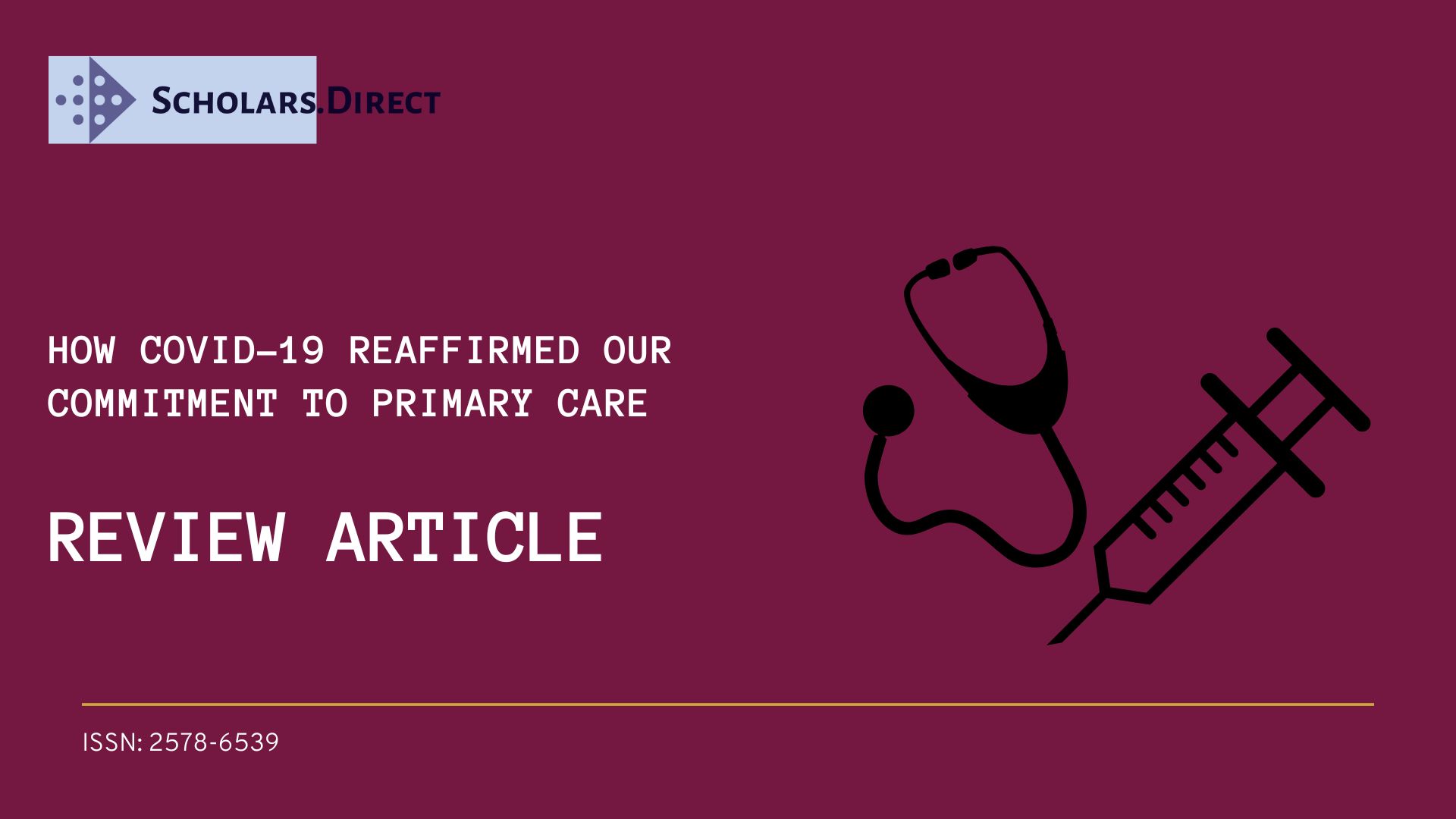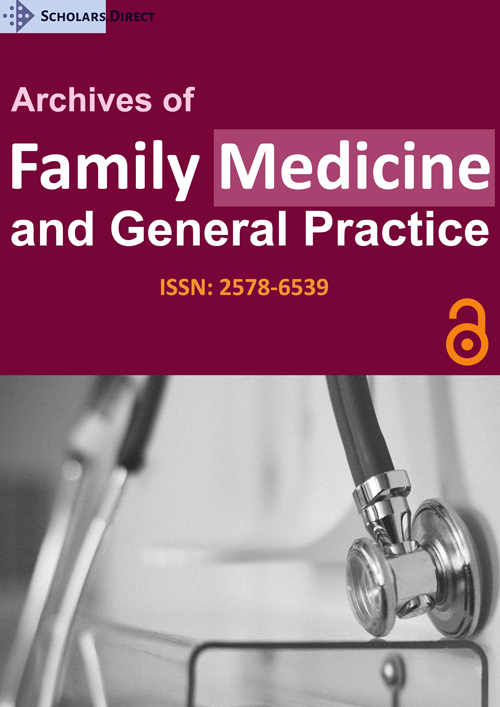How COVID-19 Reaffirmed Our Commitment to Primary Care
Abstract
The COVID-19 pandemic has affected family medicine and primary care clinicians in complex ways. While many publications focus on the problems, struggles, and obstacles faced by family medicine and primary care clinicians, this essay reports on positive experiences which were born out of extremely difficult and challenging circumstances. Many of the responses gathered illustrate the bonds that family medicine and primary care clinicians form with their patients and communities. Three depictions are highlighted, showcasing the special relationships family medicine and primary care clinicians have with their patients and communities.
Keywords
COVID-19, Family medicine, Clinician-patient relationship, Primary care
Introduction
The COVID-19 pandemic has wrought unimaginable pain and suffering to millions of people across the United States. As we pass milestone after grim milestone of lives lost to the virus, family medicine and primary care clinicians continue working at the vanguard, caring for patients, families, and communities, managing both sickness and the pursuit of wellness. These circumstances have illuminated the unique role family physicians occupy in medicine, a role that precipitates a profound closeness between clinician and patient and inspires connections that extend outside the confines of the doctor’s office.
Beginning in March 2020, the American Academy of Family Physicians (AAFP) National Research Network instituted an ongoing survey of clinicians to understand the impact the pandemic has had on clinicians and their practices. In reviewing survey responses, it became clear there was an opportunity to identify the bright spots during a time of immense anxiety, uncertainty, and grief. The question posed to respondents, "In the past week, what were the three most positive experiences you had in relation to the COVID-19 pandemic?" elicited write-in responses, many of which captured the deep bonds primary care clinicians develop with their patients and communities.
The vignettes below represent a snippet of the hundreds of write-in comments we received. Responses spanned a variety of topics including specific focus on COVID-19 actions, e.g., public health measures, testing, treatments, and vaccines. Others referenced business conduct such as changes to workflow, collaboration and support from colleagues, educational opportunities, and innovative solutions. Many comments concentrated on the personal realm like spending time with family and friends, engaging in activities and hobbies, and reflecting on simple pleasures. Each of the quotes we have included depicts an experience of a family physician during what could be the most challenging time of their careers. Although the survey received responses from a broad range of specialties across the spectrum of primary care, the perspectives included here are only from family physicians. In this essay, we focus on three spheres: expressions of appreciation, community support, and reconnection to the mission that captures the spirit of family medicine.
Expressions of Appreciation
At the forefront of responses, primary care clinicians expressed appreciation of the kind words and thoughtfulness of their patients during such a difficult time. The pandemic opened a door for patients to outwardly express their thankfulness for the care they received, nurturing the clinician-patient relationship.
We had one of our patients, who is stuck quarantining in NY, anonymously send us pizzas. (We figured out from the pizza restaurant who he was.) We also had a patient express her gratitude by sending everybody lunch one day. We spent several days last week counseling an elderly lady and her family while we were waiting for her test results to return (it was negative). I felt that we really got to know them on a special level [1].
Community Support
Family physicians and their communities rallied together to support and care for one another throughout the crisis. Bonds established between patients and clinicians expanded beyond the confines of the clinic as families, neighbors, and friends extended a hand to make sure others had the tools and resources necessary to make it through. As safety nets were stretched thin, people jumped to make sure their neighbors were cared for.
1. A couple of my patients who are known on the street as pretty tough (and representing different communities) came together, all their own idea, and organized to be my "deputies" (for both security and sharing basic info) to do outreach in some of the rougher homeless camps and hangouts.
2. A patient who has been battling alcohol addiction and was too afraid of getting sick to go into a residential detox, is now successfully on day #5 of an at home Librium detox, off a handle of vodka a day for the past 6 months - coaching them and their housemate through this has been empowering for all of us.
3. A wheelchair-bound patient with no family nearby, who usually relies on Access-a-Ride services, developed a cough and fever after one of her professional caregivers had been ill. Drive-thru COVID testing is now available through our local community hospital, but Access-a-Ride can't accept actively symptomatic passengers or go to the drive-thru. We discovered a senior center nearby that has arranged a car service specifically for this unique niche of need: trained lower risk drivers with their own PPE who can provide transportation to the drive-thru, scrub down their vehicle after each ride, and then go out for the next person in need [2].
Reconnecting to the Mission
Finally, these moments of kindness and connection reignited passion for primary care. The pandemic provided an opportunity for clinicians to reevaluate and affirm values and the priorities that guided them to this field at the beginning of their careers. These times of turmoil reminded clinicians of the unique space primary care occupies and how, so often, that choice was strengthened by the lasting relationships patients and clinicians build over time. A clear sense of purpose has led to a fulfilling career for many.
I had a patient who made a necklace for me, a small stethoscope where the chain is bent into a heart. I have been talking with patients about voting and we have made good connections about making sure to safely vote. I saw a patient who I had delivered her baby last year, and she is currently pregnant again, and she is choosing to have me deliver her next baby instead of the OBs [3].
Family medicine and primary care clinicians have continued, despite the most challenging circumstances, to develop and strengthen their relationships with patients and communities. Despite these challenges, clinicians have found bright spots that establish and strengthen connections between themselves and their mission. In turn, the communities they serve have responded with unparalleled kindness toward their doctors and one another. What makes family medicine such a special discipline is the ability to connect with patients. That connection shined through the darkness of COVID-19 and reminded us why we all chose primary care.
Acknowledgments
The authors would like to thank the survey respondents for taking the time to share their experiences and the Robert Graham Center for Policy Studies in Family Medicine and Primary Care for contributions to survey development and placement of individual survey reports on their website (https://www.graham-center.org/rgc/publications-reports.html).
Conflict Disclosure
No conflicts of interest exist.
Financial Support
None.
References
- Callen E, Robert Graham Center, Filippi M, et al. (2020) COVID-19 survey report - week six. Washington DC 19-7.
- Wade A, Callen E, Robert Graham Center, et al. (2020) COVID-19 survey report - week nine. Washington DC 19-9.
- Filippi M, Wade A, Callen E, et al. (2020) COVID-19 survey report - weeks twenty-five, twenty-six, twenty-seven, twenty-eight. Washington DC COVID 19-25/26/27/28.
Corresponding Author
Melissa K. Filippi, PhD, MPH, American Academy of Family Physicians, 11400 Tomahawk Creek Parkway, Leawood, KS 66211, USA
Copyright
© 2022 Wade A, et al. This is an open-access article distributed under the terms of the Creative Commons Attribution License, which permits unrestricted use, distribution, and reproduction in any medium, provided the original author and source are credited.





